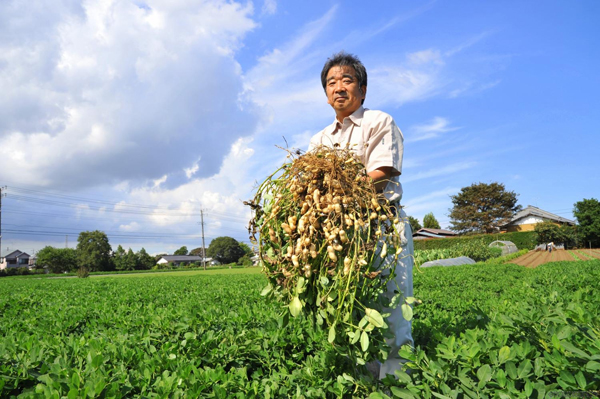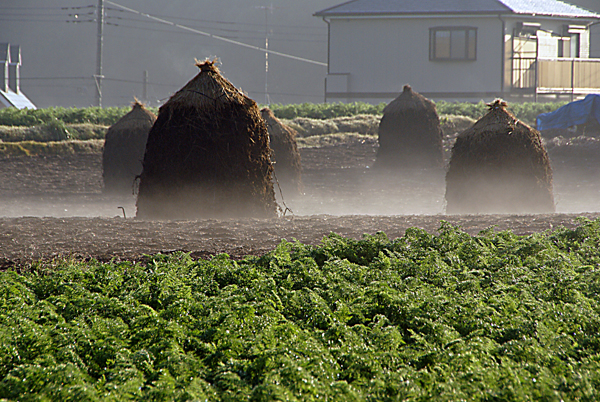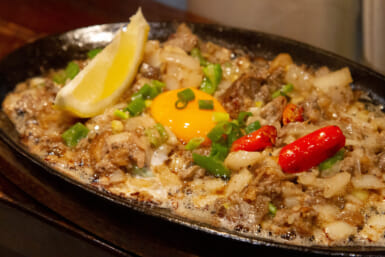Next time you fancy a snack with your beer, you’d be wise to think carefully about the provenance of your nuts…
“When I see those bocchi in the fields I’m probably like many people in Chiba,” says Mamoru Fukuda, of Yachimata City’s Chamber of Commerce and Industry, “I know autumn is on its way.” He’s talking about the bails of freshly harvested peanuts sitting in the sweeping fields gently drying in the late summer sun ready to become snacks for true connoisseurs.
Did you know?
The healthy and humble peanut started its journey to Japan in the Andes: Columbus brought the plant to Europe from America and gradually trade along the Silk Road allowed its passage to China. Okinawa was the first part of Japan to grow the crop but in the post war years Chiba farmers spotted their chance and found conditions perfectly suited to allow them to thrive.
While Japan is globally a comparatively small market, producers here have forged a niche in the “high-end peanut” market and are known for the consistency of their crop.
Fukuda says they are connoisseurs because he knows that most people who choose Chiba peanuts – particularly from Yachimata – are after a specific taste; American varieties are dried more quickly, often artificially, and those from China, the biggest point of origin for imported varieties, can suffer from time spent in the dry heat of the country’s central plains.
This is one time we can be thankful for Japan’s hot, humid and sometimes seemingly never ending summers.
“It is stimulated by the enthusiasts who come back for our produce,” says Fukuda of an industry which, while he admits has fallen in the past few decades, thrives on demand for quality. He talks about the people he calls “heavy users” and their insistence on Japanese nuts, of which 80% now come from Chiba (the bulk of the rest are grown in neighboring Ibaraki).
Particularly people who like to eat their nuts fresh – that is not roasted and salted but lightly boiled – have a keen fondness for the flavour and indeed texture of Japanese peanuts, Fukuda says, and those people say that nothing else can compare.
That is one reason wealthy Chinese are snapping them up – they send their fairly cheap pre-made/ready-roast “nut-based snacks” this way and companies such as Fukuda’s vacuum pack or freeze on site some of their best produce and send it in the opposite direction.
Most of us will have at some point had a friend annoy us with their ‘impressive new fact’ – that a peanut is not a nut – and though we may have groaned to hear the news again we were perhaps once just as impressed by our own new found ability to, we thought, shock snackers.
Mr Fukuda talks in fairly serious terms, though. He says peanuts, in part, helped the hungry and nourished many Japanese after the second world war, when many items were rationed. That hunger helped the peanut farmers from Chiba – with recovering infrastructure and new railways allowing them to travel to Tokyo – quite an opportunity as they travelled the short distance and made their fortune.
Right now we’re waiting for the arrival of the yellow flowers – in April or May – that will herald the start of a new year’s crop and the opportunity to make cooking oil, pastes and snacks of all manner but, for Fukuda and many like him, fresh and natural is best. If you haven’t tried them that way, he’d urge you to think about giving it a go.









